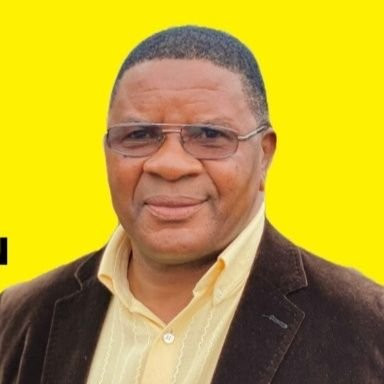
ZIMBABWE’S opposition politics has descended into chaos, with major opposition parties failing to field candidates in crucial by-elections, gifting the ruling Zanu PF with the traditionally opposition-held Glen View South constituency.
The Glen View South constituency, long considered an opposition stronghold, was won by Zanu-PF candidate Tsitsi Tawomhera, who faced token opposition from fringe candidates, including one from the National Constitutional Assembly and a handful of independents.
The main opposition party, Citizens Coalition for Change (CCC), which has members in Parliament, did not field a candidate.
CCC spokesperson Willias Madzimure admitted that the party deliberately avoided contesting, fearing that their candidate will be recalled by the embattled self-imposed interim secretary-general, Sengezo Tshabangu.
“We did not field a candidate because we were afraid that Tshabangu would recall them, just as he has been doing to our MPs and councillors,” Madzimure said.
“Until we resolve our internal disputes, we cannot risk participating in elections only for our representatives to be removed unlawfully.”
Madzimure blamed lack of electoral reforms, which were recommended by international and local observers after the disputed 2023 general elections.
“The playing field remains uneven. The reforms needed for free and fair elections have not been implemented, making it difficult for opposition parties to compete,” he said.
- Chamisa under fire over US$120K donation
- Mavhunga puts DeMbare into Chibuku quarterfinals
- Pension funds bet on Cabora Bassa oilfields
- Councils defy govt fire tender directive
Keep Reading
Following the 2023 elections, observer missions, including those from the Southern African Development Community, the African Union and the European Union, highlighted several critical reforms needed to ensure credible elections in Zimbabwe.
These included transparency of the voters roll, fair media access for opposition parties, an independent Judiciary to adjudicate electoral disputes, an end to voter intimidation and reform of the Zimbabwe Electoral Commission.
Despite these recommendations, the government has made little progress, leaving opposition parties at a disadvantage.
CCC’s failure to contest in Glen View South and a ward in Rushinga has exposed deep divisions within the opposition party.
Tshabangu’s controversial recall of elected CCC officials have further weakened the party, leaving voters disillusioned.
Movement for Democratic Change spokesperson Lloyd Damba said the party could not contest in an election which was “already rigged in favour of Zanu PF.”
“Let me take you back to the delimitation report court case challenge. We put it on record that this report was already rigged to be put in place to legitimise the perpetuation of Zanu-PF misrule,” he said.
“Participation in such a plebiscite is conspiring against the people of Zimbabwe. The people of Zimbabwe chose not to listen and now a by-election is a continuation of the same 2023 general election and Zanu PF is so focused on two things, legitimacy and getting a convincing two-thirds majority so that it can desecrate the Constitution to give President Emmerson Mnangagwa a third term.”
Damba said MDC could not go into an election or by-election that it knew had a predetermined result.
“The MDC was never formed to participate in Zanu PF agendas, but the removal of Zanu PF altogether changes the lives of the Zimbabwean people,” he said.
However, political analyst Pardon Taodzera said Zimbabwe's opposition politics was in complete disarray.
“Their inability to organise and field candidates in winnable constituencies shows a lack of strategy and leadership. With Zanu PF capitalising on the opposition’s weaknesses, Zimbabwe’s political landscape appears increasingly one-sided,” he said.
Political analyst Eldred Masunungure said what was happening in the opposition had two interpretations — one pessimistic and the other optimistic.
“The pessimistic perspective sees the opposition being on life support beyond the foreseeable future and that Zanu PF controls the machine which it can switch off at a time of its choosing.
“The notion of a dead opposition is rather far-fetched in that the regime will not allow the opposition to die because it serves a vital symbolic purpose, but the key issue in this interpretation is that the health and ill-health of the opposition is in Zanu PF's hands,” he said.
Masungure said the more sanguine school sees the opposition being in a state of painful realignment, a kind of transition from the status quo to a yet unknown destination which can be short or long.
“I think the latter perspective is more realistic and sees the opposition itself as possessing agency and sees the phoenix rising from the opposition rubble.
“The most likely scenario is the emergence of a coalition reminiscent of the late 1990s, but whether such a coalescence of broad forces will gel remains a big unknown. In the interregnum, Zanu PF is having a field day,” he said.










